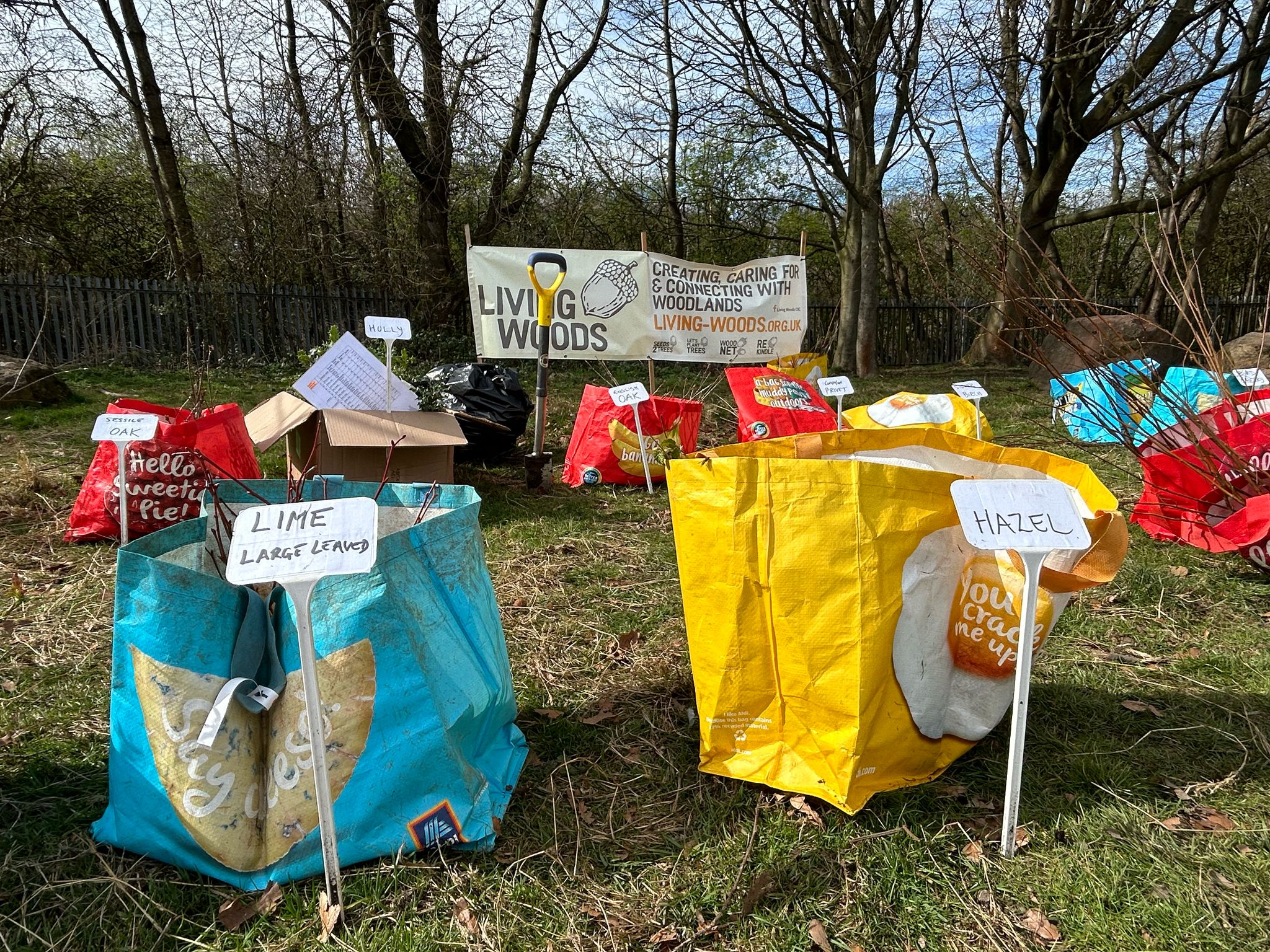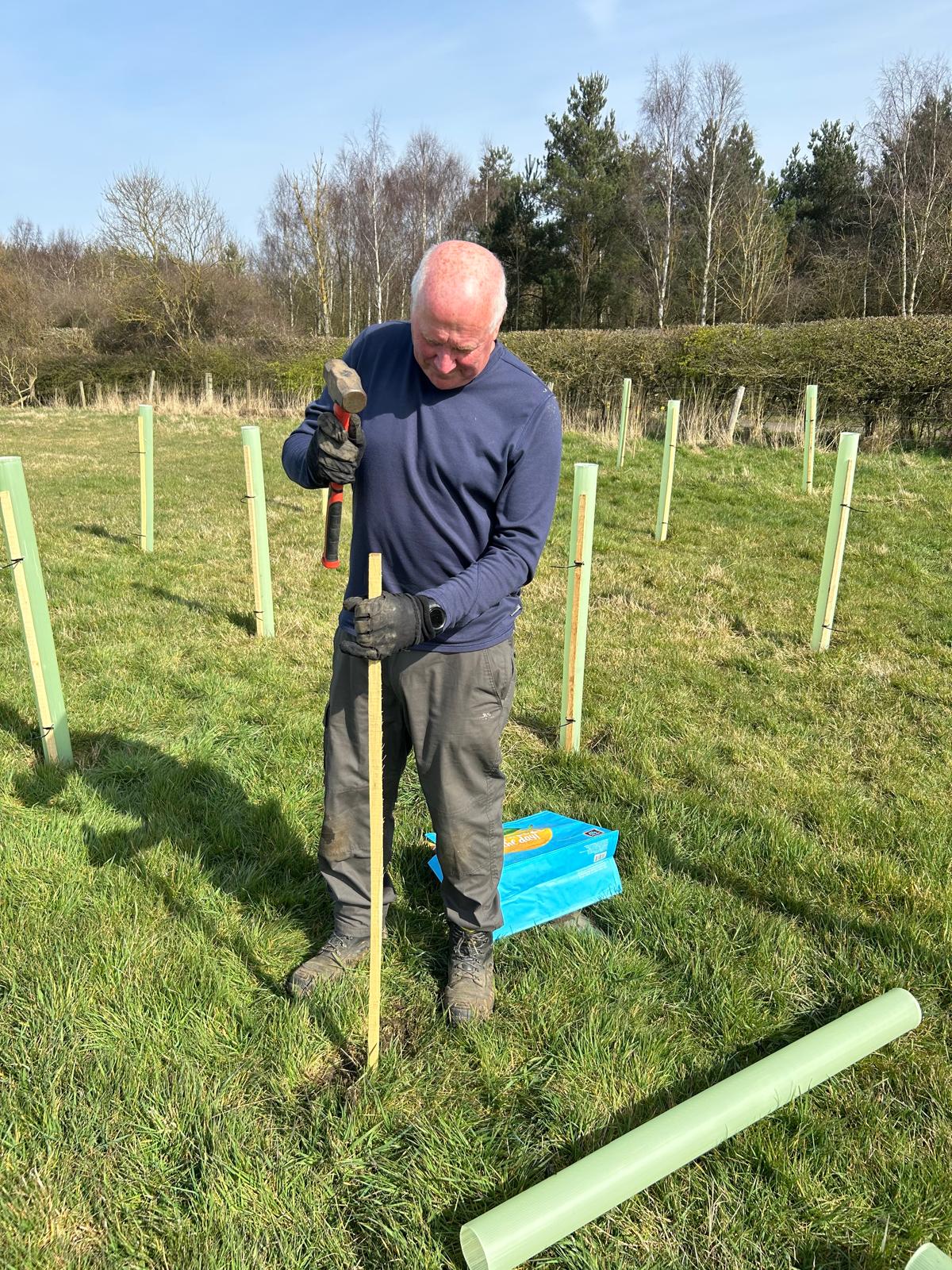It’s spring, and while we’re heading towards the end of the best time for tree planting, our teams have been busy all around the North East.
Up in North Tyneside we organised tree planting in three locations for North Tyneside Council. And at Sunderland we planted Tiny Forests at two schools. These are dense woodlands planted in a small area, recreating the natural structure of a forest in miniature. They are planted using the Miyawaki method developed in Japan, which uses species of trees that would occur naturally in that area and that work together to create a diverse eco-system. The trees planted by this method grow much faster, jump-starting the forest creation process and capturing more carbon.

The schools project was carried out for Earthwatch, an international environmental nonprofit organisation founded in 1971 which connects people with scientists to conserve our planet. They support research that responds to global challenges—from climate change to human-wildlife coexistence to sustainability—while engaging local communities.
For South Tyneside Council we planted a hedgerow shelterbelt, and held a chainsaw mentoring session at Horsley. And there has been ongoing coppicing work at Horsley, this time to supply material for the historic Arbeia Roman fort at South Shields, which was a key supply base to Hadrian’s Wall.

All sorts of activities are being planned, including one as part of our WoodNet events, a session for people working in or managing woodland, on how to deal with the menace of grey squirrels (whose aim in life seems to be to destroy our good work!) https://living-woods.org.uk/news/how-to-deal-with-grey-squirrels/
WoodNet is an informal network for connecting both people with an interest in woodland creation or management and professionals who work in the sector. It creates opportunities for joined up thinking, connection and education and sharing of information about woodland creation and management.
